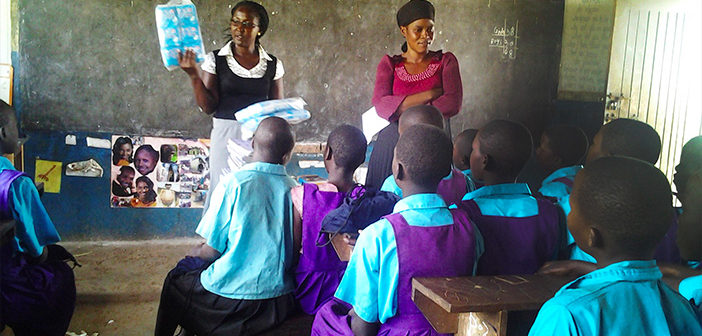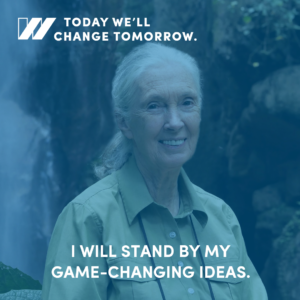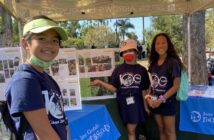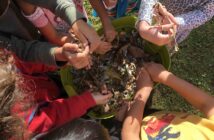People are strongest when they stand together.
Today the White House begins its two-day United State of Women Summit, which aims to inspire all people, but especially women and girls, to stand together against gender inequality. Focusing on the issue areas of economic empowerment, violence against women, educational opportunity, health and wellness, entrepreneurship and innovation, and leadership and civic engagement, the summit will feature conferences, speeches and presentations lead by inspiring women leaders. From CEOs and entrepreneurs to actresses, activists and even the First Lady herself, the summit is packed with strong women looking to make a difference in their communities and all over the world.
The Jane Goodall Institute knows that we can make great things happen when we empower women and girls. In order to support conservation efforts, it is essential that the local communities have access to sustainable livelihoods. Part of supporting those livelihoods means providing women with the framework they need to have a positive impact on their community and the environment.
One of the main ways JGI empowers women is by equipping them with the necessary reproductive health education. According to a University of London report, adolescent girls reported staying home from school for reasons related to menstruation (pain and discomfort, lack of sanitary napkins, etc.). Girls are more likely to stay in school past puberty if they have access to proper hygienic facilities and sanitary products. Women who are educated about family planning methods tend to have fewer children and more time in between births, which not only improves their health and the health of their children, but also their socio-economic prospects. According to a report by the Center for Global Development, when a girl in the developing world receives seven years of education, she marries four years later and has 2.2 fewer children on average. Smaller family size also reduces the strain on natural resources like wood, the demand for which contributes to the deforestation of chimpanzee habitat.
 In order to support health education, JGI created a Peer to Peer education program in Uganda, which operates in ten schools alongside Jane Goodall’s Roots & Shoots. Young women are given knowledge about STIs and reproductive health along with menstrual hygiene kits, which they then share with vulnerable girls in their schools and communities. The hope is that this program can reach more young women by giving them the tools to teach their peers who might not feel comfortable opening up to an outside educator.
In order to support health education, JGI created a Peer to Peer education program in Uganda, which operates in ten schools alongside Jane Goodall’s Roots & Shoots. Young women are given knowledge about STIs and reproductive health along with menstrual hygiene kits, which they then share with vulnerable girls in their schools and communities. The hope is that this program can reach more young women by giving them the tools to teach their peers who might not feel comfortable opening up to an outside educator.
JGI also empowers girls through an academic scholarship program. The program aims to decrease the education gap between young men and women in western Tanzania by sponsoring girls of all ages to attend school. Launched in 1998, the program has so far provided scholarships to 249 girls, greatly increasing their knowledge, self-confidence and opportunities.
The education that these women are receiving has not only improved their lives, but also their communities’ relationship to the environment. The sponsored girls are members of Roots & Shoots and are able to pass on knowledge of conservation and sustainable farming techniques. Recipients’ families now actively participate in  JGI’s conservation and development programs, and communities where a girl has received a scholarship are more likely to adopt sustainable practices
JGI’s conservation and development programs, and communities where a girl has received a scholarship are more likely to adopt sustainable practices
We can’t make the world a better place for people, animals and the environment if we are leaving half of our population behind.\ JGI stands together with the United State of Women in support of the work this summit is doing to improve the lives of women and girls everywhere.






